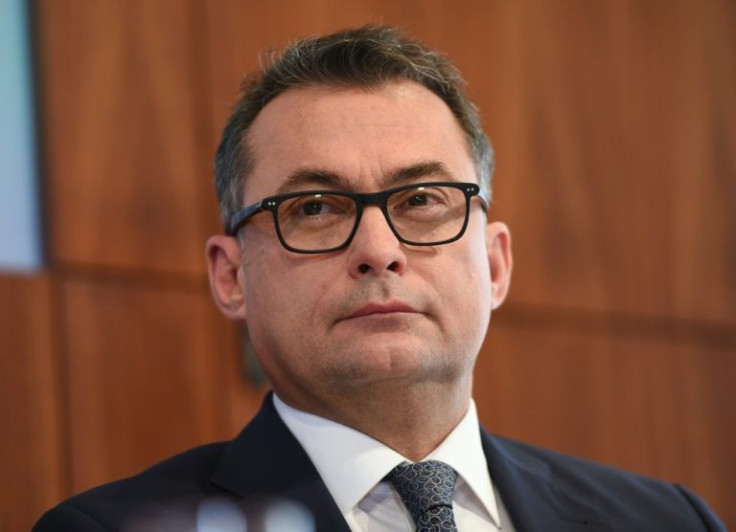Germany Taps New Bundesbank Chief
The German government on Monday tapped career central banker Joachim Nagel to take over as president of the Bundesbank, a "continuity" pick to steer the inflation-wary nation through a period of surging prices.
Nagel's nomination marks one of the first big appointments by new Chancellor Olaf Scholz's government, a three-way coalition between the Social Democrats, the ecologist Greens and the liberal FDP.
Nagel will replace outgoing president Jens Weidmann, after the long-time Bundesbank chief and well-known monetary conservative steps down at the end of the year.
An "experienced individual", Nagel represented "continuity at the Bundesbank" Finance minister Christian Lindner said in a press conference.
Nagel, 55, knows the Frankfurt-based Bundesbank well, having spent 17 years leading the markets division and information technology department.
Since 2020, he has been co-chief of the banking division at the Bank for International Settlements, considered the central bank of central banks.
Close to Scholz's Social Democrats, Nagel is seen as a compromise choice with the staunch economic conservatives in Lindner's FDP.
His appointment, which will be made official in the coming days, comes at a difficult moment for central bankers worldwide.
Inflation in Germany soared beyond five percent in November, above the European average, pushed up by a sharp rise in energy costs and pandemic-related shortages in materials and components.
The price spikes have caused some anxiety in Germany, a nation of savers still scarred by the hyperinflation of the 1920s that wiped out many people's nest eggs.
In light of rising inflation, "monetary policy stability in the tradition of the Bundesbank is important," Lindner said.
Nagel's appointment sends "a good signal to the German public, as well as Europe," he added.

Fighting the scourge of rising prices was long the Bundesbank's main mission and outgoing president Weidmann's north star.
Since taking the reins of the central bank in 2011, Weidmann was a vocal advocate of tighter monetary policy.
He often cut a lonely figure among European Central Bank policymakers, where he was among a handful of "hawks", favouring less accommodation.
Over recent years, the ECB has ratcheted down interest rates to historic lows, including a negative deposit rate for banks' overnight deposits, and unleashed a massive bond-buying programme to support the economy through the coronavirus pandemic.
At its most recent policymaking meeting last week, the ECB announced a "step-by-step" roll back of its asset-purchasing programmes, as inflation in the eurozone rose to 4.9 percent, well above its two-percent target.
European Central Bank President, Christine Lagarde tweeted her congratulations to Nagel.
"I am very much looking forward to working with such an experienced central banker in the ECB Governing Council," Lagarde said.
In Nagel, the Bundesbank was getting "the almost natural and in-house bred successor to Jens Weidmann," said Carsten Brzeski, an economist at ING.
The new president, "should continue Weidmann's stance as a guardian of more conservative monetary policies," he said.
That meant "a strict focus on assuring price stability and avoiding financing government deficits," said Eric Dor, a director at the IESEG business school.
Nagel had nonetheless shown that he had a "pragmatic" side, Dor added, conceding that central banks sometimes needed to expand their balance sheets to respond to crises.
Nagel, holder of a doctorate in economics from the Karlsruhe Institute for Technology, left the Bundesbank in 2016 to join the public lender KfW.
© Copyright AFP {{Year}}. All rights reserved.





















